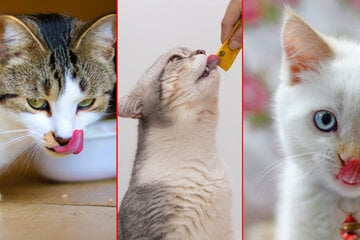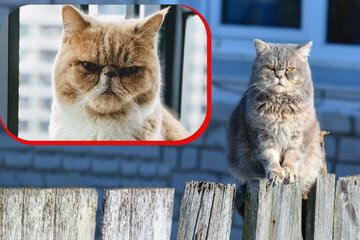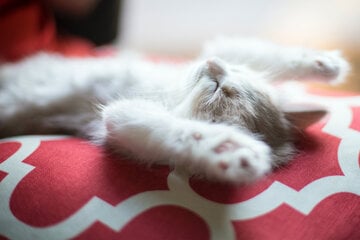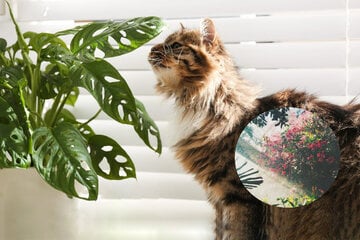Hypothyroidism in cats: Symptoms, treatment, and life expectancy
Is hypothyroidism dangerous to cats, should you be worried about your moggy's health? Well, it kind-of depends. What causes hypothyroidism in cats, though, and how can you treat it?
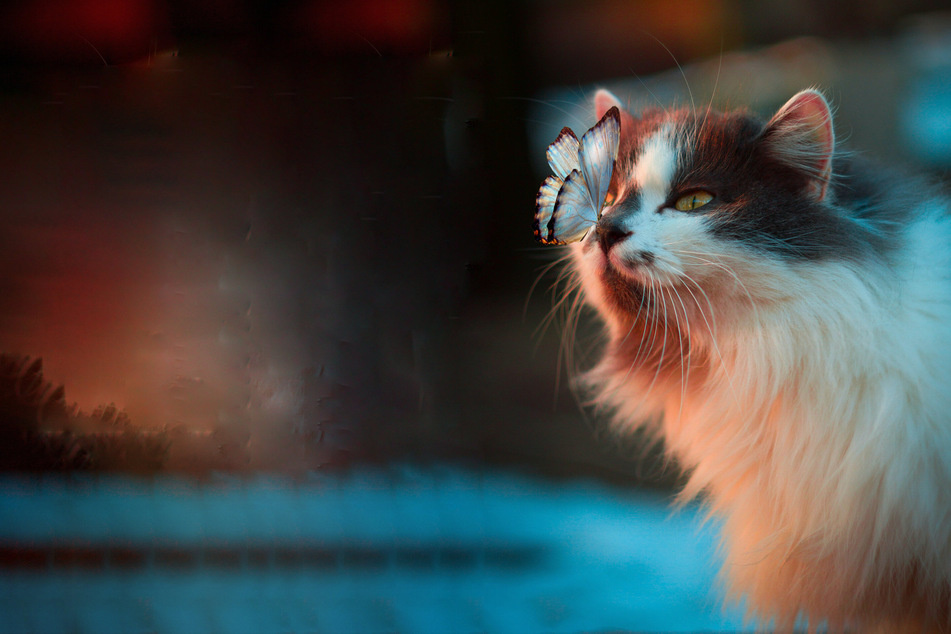
Have you noticed that your cat has quickly gained weight over the last couple of months? Have you noticed an overabundance of cat fur lying dormant around the place or rolling like tumbleweed across your floor? What's going on with cat hypothyroidism? Is this scary-named affliction something to worry about?
In this cat guide, TAG24 will take a look at hypothyroidism in cats. What causes cat hypothyroidism, what are the key symptoms to look out for, and what treatments are available? Let's take a look...
Important disclaimer: We are not doctors here at TAG24, and neither are we veterinarians. In this article, we will provide you with some basic information about hypothyroidism in cats, but no medical advice. If you are concerned, go and see your veterinarian.
What is hypothyroidism in cats?
Hypothyroidism is when a cat has an underactive thyroid gland, and therefore lacks the hormones needed for a healthy life. There are multiple different kinds of hypothyroidism, but you can generally separate them all into two different categories: cats who had the condition at birth, and those who acquired it.
The thyroid is a small gland located in your kitty's neck that operates to produce and release hormones. These hormones help to regulate your cat's metabolic rate as well, which is why cats with hypothyroidism often gain a lot of weight. It's an incredibly important gland and a very common condition in older cats.
What causes hypothyroidism in cats?
As we established, cats either acquire hypothyroidism later in life or are born with the condition. Let's talk about the latter reason first: Congenital hypothyroidism (acquired at birth) is extremely rare, and often caused by a lack of iodine in the mother's diet during pregnancy.
Congenital hypothyroidism is particularly troublesome as the thyroid hormone is critical for the development of your cat's bones and nervous system. As a result, this will regularly cause issues with your cat's mental and physical health.
There are three different kinds of acquired hypothyroidism, each caused by different things:
- Primary hypothyroidism: Believed to be caused by the destruction of thyroid tissue due to some sort of immune disorder. Alternatively, caused by the atrophy of a thyroid gland, often due to aging.
- Secondary hypothyroidism: Head trauma resulting in a decrease in the production of thyroid-related hormones.
- Latrogenic hypothyroidism: Cats with hyperthyroidism (when the thyroid gland becomes overactive) will get hypothyroidism if the treatment they have been given is a little over-zealous and has reduced hormone production too much.
No matter the cause of your cat's hypothyroidism, it is treatable with appropriate medical care.
Hypothyroidism in cats symptoms
The symptoms associated with hypothyroidism will change depending on the type you have. Congenital hypothyroidism will have additional issues as it has impacted upon every part of your kitty's physical and mental development. Most significantly, these cats will have serious differences in their cognitive ability.
Congenital hypothyroidism symptoms:
- Physically smaller than other cats, due to defective development of bones and tissue
- Mentally dull, a few apples short of a picnic
- Lethargic and tired all the time
- Not great at walking or jumping, a variety of mobility issues
- Dry skin and thin fur
Acquired hypothyroidism symptoms:
- Noticeably increased tiredness and lethargy
- Sudden and extreme weight gain
- Loss of fur and increasingly dry coat, with flaky skin (may look like dandruff)
- Loss of appetite
Cats with congenital hypothyroidism will generally also have the same symptoms as those with the active variant.
Hypothyroidism in cats life expectancy
This will come as good news to anyone whose cat has just been diagnosed with hypothyroidism: a cat with hypothyroidism, no matter the type, will have a completely normal life expectancy if they are treated appropriately. Indeed, hypothyroidism has a greater life expectancy than hyperthyroidism. This is, truly, another good reason to have regular check-ups at the veterinarian.
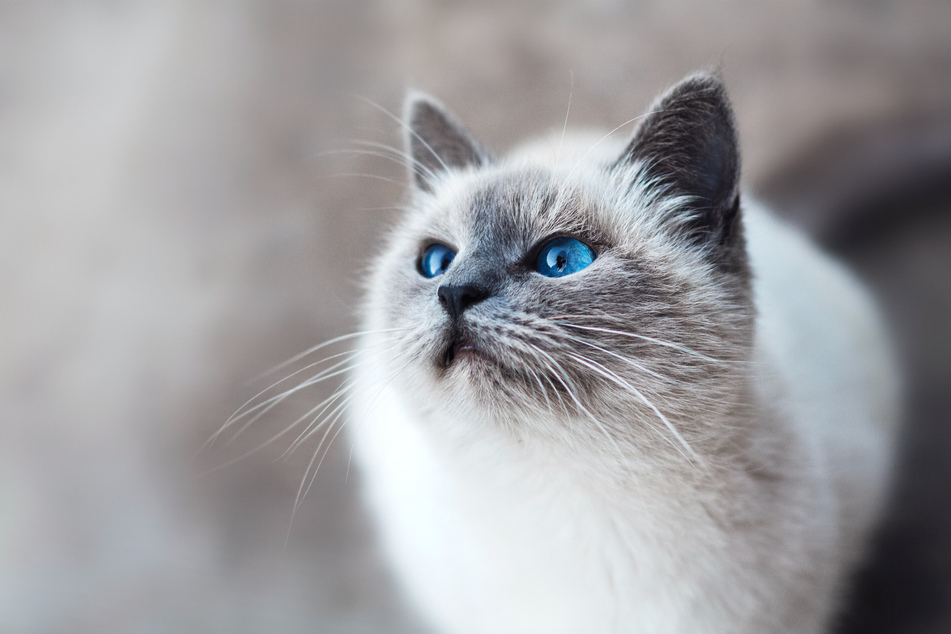
How to treat hypothyroidism in cats
Once your veterinarian has checked your fine feline out and determined the condition is hypothyroidism, it's time to follow their advice. The best treatment will be defined by your vet, but will generally be some kind of drug or synthetic hormone replacement to replace the missing hormones.
The drug sodium levothyroxine is usually prescribed and applied twice a day (depending on the brand, dosage, etc.), and some cats will also take synthetic sodium liothyronine. These drugs will often need to be given for the rest of the cat's life.
Fun fact: In some cases a modified diet, with reduced fat, will also be recommended for your cat, but this is less common.
How to treat cat hypothyroidism naturally
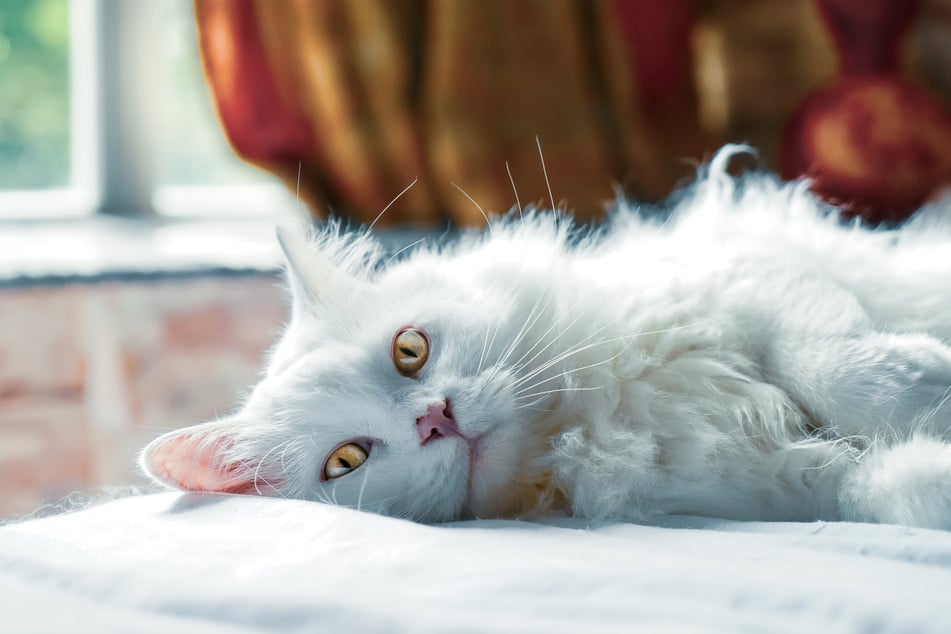
In some cases, a cat will recover from hypothyroidism naturally overtime, with nothing but a change in diet needed. This is not recommended, though, unless your vet has explicitly asked for this to be the treatment method. It is not a good idea to ever just leave a medical condition unattended.
On top of that, it is not recommended that a cat be treated with alternative medicines, as the majority of these methods are not considered legitimate. You want to guarantee your cat's good health, so be sure to call your veterinarian.
Hypothyroidism doesn't only afflict cats!
Cats aren't the only lucky owners of a potentially underactive thyroid gland. Humans get hypothyroidism, too, and dogs are particularly likely to be diagnosed with it. There are a variety of scientific reasons for all of this, but let's just say that if an animal has a thyroid, it can potentially get hypothyroidism.
Don't fret, though! While hypothyroidism in cats is by no means a walk in the park and should be taken seriously, with the right treatment, your kitty will still live a long and fruitful life.
Cover photo: Karina Vorozheeva / Unsplash
